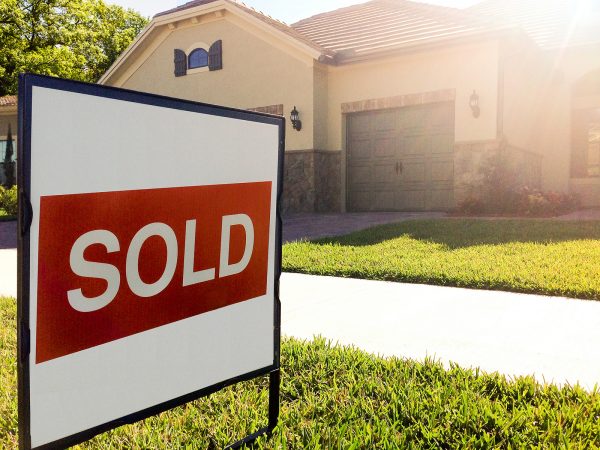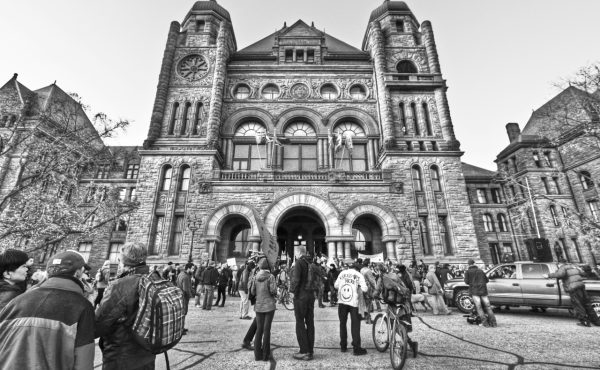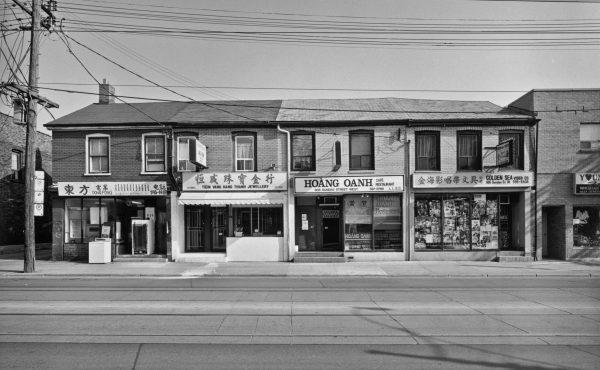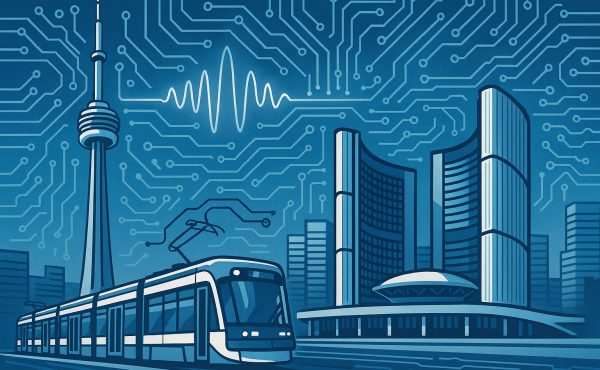
The latest spitball fired in the ongoing pissing match between the City and the province came from the new Liberal housing minister, Etobicoke MPP Peter Milczyn, who yesterday accused John Tory and company of chronically underfunding Toronto Community Housing, as the Toronto Sun reported.
Which, of course, is true, as is the ritual counter-allegation from the City about the province’s failure to sufficiently fund a social program that has no business being on the property tax. As is the occasional broadside against the federal government which, until a few years ago, has been almost completely absent from the social housing space for more than a generation.
Everyone’s washed their hands of social housing, including you, dear reader, if you ever voted in support of a rate-of-inflation property tax hike or put your name to a local petition objecting to a new supportive housing complex. We’re all guilty in one way or the other.
Let me suggest a partial solution to this accusatory impasse: Earlier this year, in response to the hysteria over speculation-driven residential real estate price hikes, Queen’s Park U-turned and imposed a foreign-buyers tax, similar to the one levied by British Columbia.
According to data released in mid-July, about 859 homes acquired between late April and late May — or about 4.7% of the total sales in Greater Toronto — qualified for the tax, which amounts to 15% of the sale price, pro-rated according to the portion acquired by a non-citizen if there were multiple buyers.
How much money did the province collect in this brand new, and apparently politically unopposed, tax? I asked the provincial finance department a few weeks ago and the spokesperson declined to provide a number, saying only that it would part of the government’s fall economic statement.
But if you do some back-of-the-envelope math, that figure is likely to be significant, even with some cooling in the market. The average price in June was just under $800,000, according to figures reported in The Globe and Mail. If we assume that all the homes and condos subject to the foreign buyers tax sold for that amount, then the 15% anti-speculation tax collected for that first one month alone would total about $103 million. Which isn’t chump change, is it?
Even if the figure drops by 20%, the annual take for the provincial treasury could be in the $1 billion range. This, of course, is why Queen’s Park won’t reveal the projected total; that windfall potentially becomes a slush fund for election promises next year.
Here’s my idea: what if that whole amount is reinvested in social housing in Greater Toronto, with half for state-of-good-repair outlays, and the balance for new construction, with the amounts divided geographically according to demand for subsidized housing?
It seems to me that there’s some compelling policy coherence in using funds drawn from an over-heated housing market to help provide affordable housing for families that have been priced out of said market because of the aforementioned price inflation.
High housing prices are the result of many factors, only some of which are controllable locally. But regions and municipalities are able to deploy land use planning policies to regulate supply, and, indirectly, rents. Yet in a system like ours, where the municipality finds itself responsible for what is, in effect, an income redistribution program that should properly be funded from a progressive tax base, there’s a strong argument to be made for reinvesting real estate related revenue into programs/projects that mitigate housing affordability pressures.
It’s not unlike using road pricing revenues (highway tolls or cordon charges, etc.) to underwrite transit development.
A few caveats: as with the City of Toronto’s land transfer tax, the revenue from the foreign buyers tax isn’t necessarily stable or predictable, and therefore shouldn’t be used to fund operations.
But since the key point of friction between Queen’s Park and the City these days seems to be focused on the backlog of TCHC repairs, the province could certainly break the stand-off by earmarking those new-found revenues for the backlog without impacting its other program responsibilities.
What’s more, there’s no political blow-back because the foreign buyers tax doesn’t come with a pop-up aggrieved constituency. The Liberals get to credibly claim they’ve made progress in undoing one of the legacies of the Mike Harris-era downloads. The City, in turn, has less debt overhang on its balance sheet. Oh yes, and thousands of TCHC tenants can finally have more dignified accommodations with luxuries like working elevators and windows that close properly. In short, wins all around.
I’m guessing there are lots of political interests around the cabinet table with their eyes on that windfall, especially in the run-up to an election where the outcome is highly uncertain. Yet Wynne should resist – and be encouraged to resist – the temptation to spend it on election promises.
The funds from the foreign buyers tax — which was always a half-measure — should be used to address the social problems exacerbated by a speculation-driven housing market that forced the government to intervene. Wynne is a green premier, and she must figure out how to beneficially recycle this money.





3 comments
Your suggestion certainly merits further study.
I like the idea, but I would add one refinement. The foreign buyers tax should be allocated back to the municipality from which it was generated; e.g. if a property was sold to a foreign buying in Hamilton, than the money should be sent back to Hamilton to spend on social housing. Similarly, if a property sold in the Muskokas to a foreign buyer, than the money should be returned to the District of Muskoka. Areas outside the GTA also have social funding gaps. Granted, most of the money will still stay in the GTA under this proposal, but the GTA also has the largest (dollar amount) of social funding gap. Notwithstanding, we should be mindful that areas outside the GTA also have social needs.
I agree with the other comments. Interesting idea but the “Non-Resident Speculation Tax” applies to the Greater Golden Horseshoe area, not just the GTA.